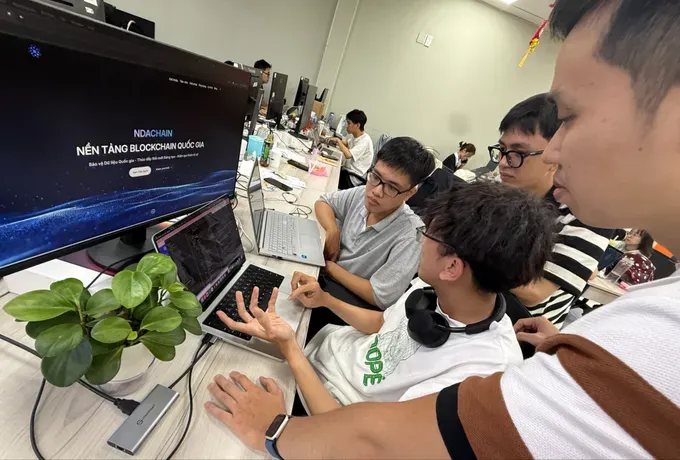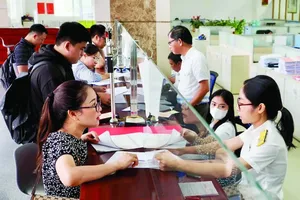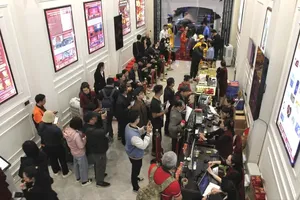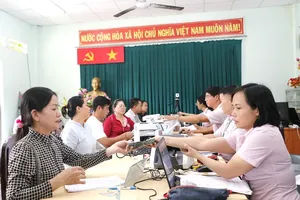
As the technological revolution reshapes global finance, blockchain has emerged as a foundational pillar of digital trust. From the tokenization of assets to the rise of crypto exchanges, the world is navigating a new era of transparent, decentralized finance.
Vietnam is determined not to be left on the sidelines. Armed with a national blockchain strategy and a new legal framework, the nation is taking deliberate steps to build a digital financial system that is secure, modern, and integrated with the global economy.
The report from VinaCapital, a leading investment and asset management group in Vietnam, reveals that the country is already a global heavyweight in crypto adoption, with an estimated 17 million investors and an annual transaction volume exceeding US$100 billion. Historically, the vast majority of these transactions occurred on international platforms like Binance, Bybit, and OKX, resulting in a significant outflow of capital from the domestic financial system.
Resolution 05/2025/NQ-CP marks a decisive turning point. To be licensed under the pilot program, exchanges must meet stringent requirements: minimum capital of VND10 trillion ($392 million), with at least 65 percent sourced from established financial institutions, and transaction fees capped at around 0.15 percent, all under the direct supervision of the Ministry of Finance. After a six-month grace period, individuals trading on unapproved platforms could face administrative fines or even criminal charges.
While the new rules are designed to create a safe and transparent environment, they have cast a chill over a previously freewheeling market. Immediately following the resolution’s release, major international players like Coin98 Wallet, KyberSwap, and Binance suspended services for Vietnamese users or halted support for VND trading pairs.
“We are proactively updating our policies to ensure compliance as we await detailed guidance on some of the new rules,” explained Tran Xuan Tien, a representative for Coin98’s operator. Meanwhile, at the Da Nang Fintech Summit 2025, Binance’s Country Director Lynn Hoang was candid: “If the legal framework is constructive, Vietnam stands to gain immensely; otherwise, it could be a missed opportunity.”

For a market accustomed to years of unfettered access, the new controls have fostered a collective sense of caution. “It used to be so easy,” said Khung Thanh Van, a long-time investor. “Now, I’m worried about being traced, so I’m limiting my trades.”
In stark contrast to the hesitancy of international exchanges, Vietnam’s domestic financial giants are moving swiftly to fill the void. Within months, Techcombank established its TCEX exchange, VIX Securities launched VIXEX with a capital of VND1 trillion ($39.2 million), HD Securities announced plans to invest VND1.47 trillion ($57.6 million) in a new platform, and VPBank is finalizing its application for the pilot.
“Banks have clear advantages in capital, technology, personnel, and, most critically, experience with Anti-Money Laundering (AML) and Know Your Customer (KYC) protocols,” noted Vu Son, a financial analyst. “With a legal framework in place, they are perfectly positioned to deploy secure and efficient crypto trading platforms.” He added that their entry will help formalize massive undeclared capital flows, allowing the state to collect taxes, mitigate risk, and build investor trust.
An expert from the Vietnam Institute for Digital Economy Development lauded the new framework. “Resolution 05 places investors at the center, ensuring their right to open accounts, access information, and be protected. This is the foundation for a sustainable digital asset market in Vietnam.”
On October 8, Prime Minister Pham Minh Chinh signed a decision to establish a Steering Committee for the signing ceremony of the United Nations Convention on Cybercrime and related events in Vietnam.
The Head of the Steering Committee is Deputy Prime Minister Bui Thanh Son; Deputy Heads include Deputy Minister of Public Security Pham The Tung (Permanent Deputy Head), Deputy Minister of Foreign Affairs Dang Hoang Giang. The Prime Minister also decided to establish a Permanent Secretariat and 6 sub-committees to assist the Steering Committee.
On December 24, 2024, the United Nations General Assembly officially adopted the United Nations Convention on Cybercrime. Hanoi has been chosen by the United Nations as the location for the signing ceremony of the Convention on October 25 and 26. The event affirms Vietnam’s position among the world’s leading countries for peace, stability, and its increasingly high role and status in the international arena.
At a press conference on October 5, Deputy Minister of Finance Nguyen Duc Chi confirmed that the Ministry of Finance is urgently completing the legal framework, developing policies on taxes and fees for crypto asset transactions on licensed pilot exchanges.
The leadership of the Ministry of Finance hopes that many businesses will be interested in this field, but according to regulations, only 5 businesses will be licensed to pilot the establishment of crypto asset exchanges. The Ministry of Finance expects to grant pilot licenses in 2025, but it depends heavily on the preparation of conditions by the businesses.
























